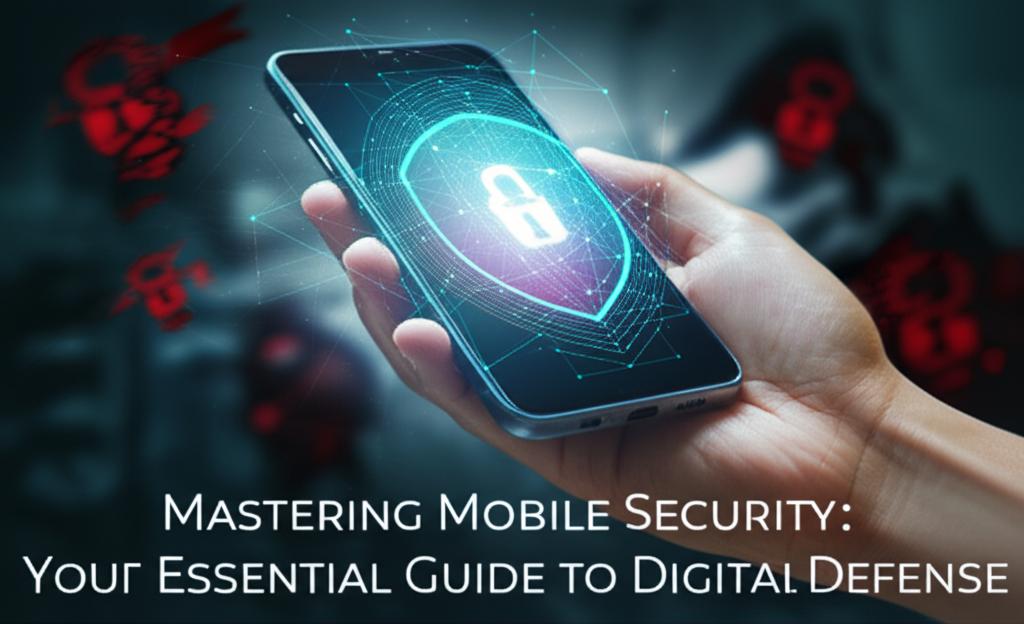Mastering Mobile Security: Your Essential Guide to Digital Defense
What is Mobile Security?
In our increasingly connected world, mobile devices have become indispensable. From managing finances and communicating with loved ones to navigating our daily lives, smartphones and tablets hold a wealth of personal and sensitive information. This ubiquity makes the critical domain of Mobile Security not just important, but absolutely vital.
Mobile Security refers to the measures and practices designed to protect mobile devices, the data they store, and the networks they connect to, from various digital threats. It encompasses a broad range of technologies, policies, and user behaviors aimed at safeguarding against unauthorized access, malware, data breaches, and other cyber risks.
Why is Mobile Security Crucial in Today’s Digital Age?
The reliance on mobile devices for almost every aspect of modern life elevates the stakes for their security. Without robust Mobile Security, individuals and organizations face significant risks:
- Data Breaches: Personal photos, banking details, contacts, and confidential business documents are all vulnerable.
- Identity Theft: Malicious actors can steal credentials and impersonate users.
- Financial Loss: Unauthorized transactions or fraudulent activities can lead to direct monetary damages.
- Privacy Invasion: Location tracking, eavesdropping, and unauthorized access to cameras and microphones compromise personal privacy.
- System Compromise: Malware can slow down devices, drain batteries, or even render them inoperable.
Key Components of Robust Mobile Security
Effective Mobile Security is a multi-layered approach, addressing various vectors of attack:
1. Device Security
This includes physical and digital protection of the device itself. Features like strong passcodes, biometric authentication (fingerprint, facial recognition), remote wipe capabilities for lost/stolen devices, and device encryption are fundamental.
2. Network Security
Protecting data as it travels over networks. This involves using Virtual Private Networks (VPNs) when connecting to public Wi-Fi, ensuring Wi-Fi networks are secured with strong encryption (WPA3), and being wary of unsecured or suspicious networks.
3. Application Security
Focuses on ensuring that applications downloaded and installed on the device are safe. This includes downloading apps only from official app stores, reviewing app permissions carefully, and regularly updating apps to patch vulnerabilities.
4. Data Security
Measures to protect the information stored on the device. End-to-end encryption for messaging, cloud backup with strong security protocols, and secure storage solutions are vital for safeguarding sensitive data.
5. User Behavior
Often the weakest link, user behavior plays a critical role. Awareness of phishing scams, strong password hygiene, caution with suspicious links, and understanding social engineering tactics are paramount.
Common Mobile Security Threats
Understanding the threats is the first step towards effective protection:
- Malware and Viruses: Malicious software designed to disrupt device operations, steal data, or gain unauthorized access.
- Phishing Attacks: Deceptive messages (email, SMS) designed to trick users into revealing sensitive information.
- Unsecured Wi-Fi Networks: Public Wi-Fi hotspots often lack encryption, allowing attackers to intercept data.
- Lost or Stolen Devices: Without proper security, a lost device can grant full access to personal data.
- Outdated Software: Unpatched operating systems and apps contain vulnerabilities that attackers can exploit.
- Spyware: Software that monitors and records user activity without consent.
Best Practices for Enhancing Your Mobile Security
Implementing these practices can significantly bolster your digital defenses:
- Strong Passwords & Biometrics: Always use a complex passcode or biometric authentication for device unlock.
- Keep Software Updated: Regularly update your operating system and all applications to patch security flaws.
- Use a VPN: Especially when connecting to public Wi-Fi, a VPN encrypts your internet traffic.
- Be Cautious with Apps: Download only from reputable app stores and review permissions before installing.
- Enable Remote Wipe/Lock: Configure your device to be remotely wiped or locked if lost or stolen.
- Regular Backups: Back up your important data to a secure cloud service or external drive.
- Educate Yourself: Stay informed about the latest mobile security threats and best practices.
- Install Security Software: Consider a reputable mobile antivirus or security suite.
The Future of Mobile Security
As technology evolves, so do the threats. The future of Mobile Security will likely involve more advanced AI-driven threat detection, enhanced biometric authentication methods, blockchain-based security solutions, and increasingly robust privacy controls integrated directly into operating systems. Staying ahead requires continuous vigilance and adaptation.
In conclusion, Mobile Security is not merely an optional add-on but a fundamental pillar of our digital lives. By understanding the risks and adopting proactive security measures, we can safeguard our personal information, maintain our privacy, and enjoy the convenience of mobile technology without fear.







